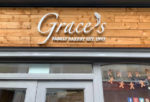Earlier this year the Isle of Wight council shared the results of a recent inspection by the Care Quality Commission and Ofsted which stated that “support for children and young people with special educational needs or disabilities (SEND) has improved“.
The overwhelming response from parents on social media (not just on our Page but when our posts are shared by others) was that from their own experience, they didn’t recognise this improvement.
In fact, many said they don’t know a single family with a positive thing to say about the Isle of Wight’s SEND support.
SEND stories #4
OnTheWight began a series of SEND stories from families on the Isle of Wight, highlighting the disparity between what the IWC, Ofsted and CQC say and the experience of families needing SEND support.
This week we share the story of Harry and his parents, Jane and Robert.
Harry’s story
14-year-old Harry began having difficulties when he started at pre-school at the age of three. As Jane and Robert’s first child, they thought the behaviour was due to his age and being separated from them.
Jane explained that the difficulties continued into primary school, where he refused to attend and became aggressive. She sought advice from the school many mornings, in tears after being hit and kicked all the way to school.
“This was shrugged off and I was told he isn’t like this in school and is fine when you have left.”
“Can’t send a child home just because you cannot manage them”
Jane went on to say,
“Behaviours began to start at school, I was called daily and asked to collect Harry, I eventually refused to do this telling the school that it’s against the law to just send a child home because you cannot manage them.”
Jane says this is when school then started to exclude Harry. She explained that no further interventions were sought by the school and she was told he would grow out of it. Jane and Robert were scrutinised and told to attend parenting courses.
There was absolutely no support for Harry himself.
Deteriorating situation
By the time Harry started secondary school, things deteriorated, he was put in isolation booths, after-school detentions, constantly excluded and still no SEN input, says Jane.
“We were told numerous of times his behaviour was chosen and had no learning needs.”
At this point Harry had been diagnosed with ADHD.
EHCP refused
As we’ve heard from other families, Harry also experienced being declined for an Educational Health Care Plan assessment.
Jane says it was the school’s opinion that Harry’s behaviour is chosen. She told us,
“At times, we as parents, believed this.”
Then a permanent exclusion was issued and Jane and Robert were again challenged about their parenting, this time by outside agencies.
Lack of the right support
Jane explained,
“The support needed for Harry is not on the Island and we’re consistently told they just don’t have the funding to support him (therefore, in my view, easier to exclude and remove from the school register).
“Home education has been proposed to us a number of times. Harry has now also been diagnosed Autistic Spectrum Disorder (ASD), but doesn’t fit criteria for either mainstream or St George’s School.”
Harry was even suicidal at one point and admitted to hospital, but Jane explained there was still no support for him.
Impact on family
As you can imagine, and as we have heard from other families in the series, Harry’s situation and the lack of external support has had a massive impact on the family.
Jane said,
“With any SEN child this obviously does impact on the whole family, but with no support or confidence in schools and Isle of Wight services, all of our time has been consumed on getting the best for Harry and his educational needs, as well as his social emotional and mental health.”
Unacceptable to be criminalised
She went on to say,
“Harry had some really traumatic events through school and has lost trust in all adults who are supposed to support him.
“He has been criminalised for behaviours seen as chosen and this is unacceptable.”
Lack of joined up communication
It’s easy to imagine how draining and exhausting it would be having to repeat your story over and over again, year after year to the different agencies you’re seeking help from. Jane added,
“We have had to explain Harry and his background to every person we have ever had to deal with as communication between services just doesn’t happen.
“It’s physically and mentally draining repeatedly going through everything, as well as fighting for everything that Harry needed to be able to attend school and remain in school without exclusions.”
Child to parent abuse
An important and rarely-covered issue was raised by Jane during the discussions. She pointed out how abuse from child to parent is not recognised in the same way as domestic violence.
Child to parent violence is deemed as bad parenting, she says, and parents are subsequently embarrassed to come forward and talk.
“I have completed many of parenting course, on the demand of other professionals. Yet schools have no recognition of how to manage. Our battle is still ongoing.”
What can change?
We asked Jane if she was able to change one thing about the SEND support on the Island what would it be. She replied,
“We would like to see more support for all these children, a school suitable to accommodate all these children floating in the middle, services implemented for longer periods of times and Autism awareness to be made aware to all teachers during training.”
Share your story
If you would like OnTheWight to share your experience of SEND services on the Isle of Wight, get in touch.
Your SEND Story will be dealt with sensitively and we can anonymise the report if you wish.
Image: Rachael Crowe under CC BY 2.0





